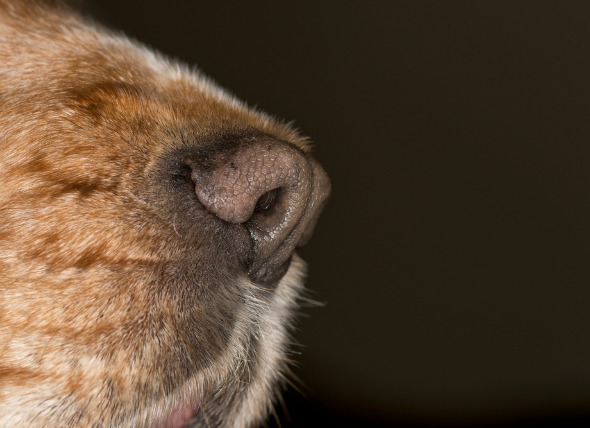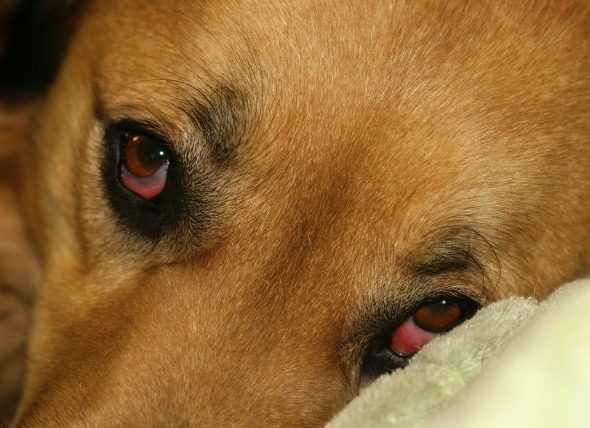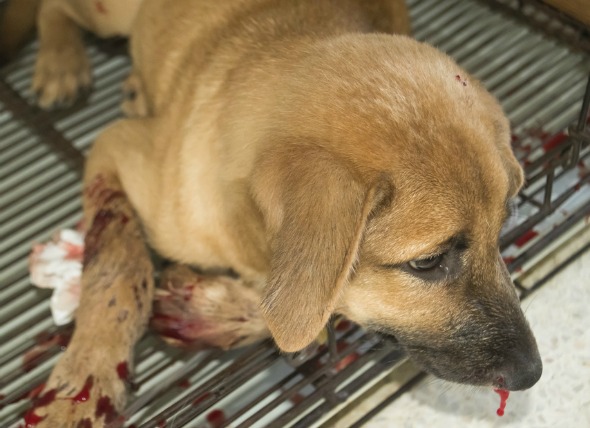

False pregnancy, or pseudopregnancy, is a term used to denote a common condition in a non-pregnant female dog that is showing symptoms of pregnancy, lactation, or nursing, without producing puppies. The affected female dog shows these symptoms about a month or two after her estrus (heat) is over. A hormonal imbalance is thought to play a central role in affected female dogs. Depending on the severity of problem, the symptoms may last for more than a month.
The exact cause for this condition is unknown. However, hormonal imbalances, especially of progesterone and prolactin, are thought to play an important role in its development. Some female dogs have been found to show such abnormal symptoms within three to four days after after an ovariohysterectomy (surgical removal of the ovaries and uterus).
You will need to give a detailed history of your dog’s health, and the onset and nature of the symptoms. Your veterinarian will perform a thorough physical exam to evaluate all body systems, and to evaluate the overall health of your dog. Routine blood tests will include a complete blood count, biochemistry profile and urinalysis, all of which usually reveal normal results, unless an underlying disease is present. And diagnostic imaging such as abdominal X-rays and ultrasound is used to rule out infection of the uterus or normal pregnancy.
Unless symptoms persist, treatment is typically unnecessary. Otherwise, your veterinarian may recommend hormonal supplementation or ovariohysterectomy (removal of ovaries and uterus) to prevent further episodes.
To reduce mammary gland secretions, your veterinarian will advise you on using cold or warm packs to minimize the stimulation that promotes lactation. An Elizabethan collar (cone) can also help prevent the self-nursing or licking behavior that can stimulate lactation. In some patients, reducing the daily food intake can help to reduce the production of milk.
For those owners who are not planning to breed their dog, and do not want their female dogs to reproduce in the future, ovariohysterectomy is recommended for preventing future episodes of false pregnancy behavior. The overall prognosis is good and most dogs improve within two to three weeks, even without treatment.
 Nose Cancer (Chondrosarcoma) in Dogs
Chondrosarcoma of the Nasal and Paranasal Sinuses in Dog
Nose Cancer (Chondrosarcoma) in Dogs
Chondrosarcoma of the Nasal and Paranasal Sinuses in Dog
 'Mad Itch' Pseudorabies Virus Infection in Dogs
Suid Herpesvirus in Dogs
The pseudorabies virus i
'Mad Itch' Pseudorabies Virus Infection in Dogs
Suid Herpesvirus in Dogs
The pseudorabies virus i
 Droopy Eye in Dogs
Horner’s Syndrome in Dogs
Horner’s sy
Droopy Eye in Dogs
Horner’s Syndrome in Dogs
Horner’s sy
 Pancreatic Cancer (Insulinoma) in Dogs
Insulinoma in Dogs
Insulinomas are malignant neop
Pancreatic Cancer (Insulinoma) in Dogs
Insulinoma in Dogs
Insulinomas are malignant neop
 Nose Bleed in Dogs
Epistaxis in Dogs
A bleeding nose can come from s
Nose Bleed in Dogs
Epistaxis in Dogs
A bleeding nose can come from s
Copyright © 2005-2016 Pet Information All Rights Reserved
Contact us: www162date@outlook.com